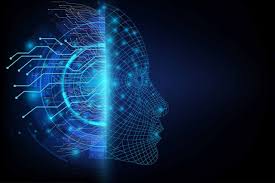Inteligência artificial no diagnóstico psiquiátrico: desafios e oportunidades na era do aprendizado de máquina
DOI:
https://doi.org/10.25118/2763-9037.2024.v14.1318Palavras-chave:
inteligência artificial, diagnóstico psiquiátrico, aprendizado de máquina, tecnologia de saúde mental, psiquiatria personalizadaResumo
A integração da inteligência artificial (IA) no diagnóstico psiquiátrico anuncia uma nova era nos cuidados de saúde mental, oferecendo oportunidades sem precedentes para melhorar a precisão do diagnóstico, personalizar o tratamento e agilizar os fluxos de trabalho clínicos. Uma abordagem sistemática foi utilizada, aderindo às diretrizes PRISMA (Preferred Reporting Items for Systematic Reviews and Meta-Analyses). Esta revisão da literatura explora o estado atual da IA no diagnóstico psiquiátrico, destacando tecnologias-chave como aprendizado de máquina, processamento de linguagem natural e aprendizado profundo. Discutimos a aplicação dessas tecnologias em vários transtornos psiquiátricos, incluindo depressão, ansiedade e esquizofrenia. Embora a IA seja imensamente promissora, permanecem desafios significativos, incluindo questões de privacidade de dados, preconceitos de modelo e validação clínica de ferramentas de IA. Além disso, considerações éticas e regulamentares devem ser abordadas para garantir uma implementação responsável. Esta revisão também examina as possíveis direções futuras da IA na psiquiatria, enfatizando a importância da colaboração entre os sistemas de IA e os médicos humanos. À medida que o campo evolui, a IA tem o potencial de transformar a prática psiquiátrica, oferecendo novos caminhos para a detecção precoce, cuidados personalizados e monitorização terapêutica.
Downloads
Métricas
Referências
Garber M. When PARRY met ELIZA: a ridiculous chatbot conversation From 1972. Washington: The Atlantic; 2014. https://www.theatlantic.com/technology/archive/2014/06/when-parry-met-eliza-a-ridiculous-chatbot-conversation-from-1972/372428/
Lindsay RK, Buchanan BG, Feigenbaum EA, Lederberg J. Applications of artificial intelligence for organic chemistry: the Dendral project. New York: McGraw-Hill; 1980.
Lee EE, Torous J, De Choudhury M, Depp CA, Graham SA, Kim HC, Paulus MP, Krystal JH, Jeste DV. Artificial intelligence for mental health care: clinical applications, barriers, facilitators, and artificial wisdom. Biol Psychiatry Cogn Neurosci Neuroimaging. 2021;6(9):856-64. https://doi.org/10.1016/j.bpsc.2021.02.001 PMID:33571718 - PMCID:PMC8349367
Brunn M, Diefenbacher A, Courtet P, Genieys W. The future is knocking: how artificial intelligence will fundamentally change psychiatry. Acad Psychiatry. 2020;44(4):461-6. https://doi.org/10.1007/s40596-020-01243-8 PMID:32424706
Squires M, Tao X, Elangovan S, Gururajan R, Zhou X, Acharya UR, Li Y. Deep learning and machine learning in psychiatry: a survey of current progress in depression detection, diagnosis and treatment. Brain Inform. 2023;10(1):10. https://doi.org/10.1186/s40708-023-00188-6 PMID:37093301 - PMCID:PMC10123592
AI for Precision Mental Health. Kourtzi Z, Liakata M, organisers; Schönlieb CB, Lyons T, Tino P, researchers. London: The Alan Turing Institute; 2019. https://www.turing.ac.uk/research/research-projects/ai-precision-mental-health
Li M, Jiang Y, Zhang Y, Zhu H. Medical image analysis using deep learning algorithms. Front Public Health. 2023;11:1273253. https://doi.org/10.3389/fpubh.2023.1273253 PMID:38026291 - PMCID:PMC10662291
Bracher-Smith M, Crawford K, Escott-Price V. Machine learning for genetic prediction of psychiatric disorders: a systematic review. Mol Psychiatry. 2021;26(1):70-9. https://doi.org/10.1038/s41380-020-0825-2 PMID:32591634 - PMCID:PMC7610853
Dwyer DB, Falkai P, Koutsouleris N. Machine learning approaches for clinical psychology and psychiatry. Annu Rev Clin Psychol. 2018;14:91-118. https://doi.org/10.1146/annurev-clinpsy-032816-045037 PMID:29401044
Zafar F, Fakhare Alam L, Vivas RR, Wang J, Whei SJ, Mehmood S, Sadeghzadegan A, Lakkimsetti M, Nazir Z. The role of artificial intelligence in identifying depression and anxiety: a comprehensive literature review. Cureus. 2024;16(3):e56472. https://doi.org/10.7759/cureus.56472
Shim M, Kim DW, Lee SH, Hwang HJ. Editorial: AI-based computer-aided diagnosis and prognosis for psychiatric disorders. Front Hum Neurosci. 2022;16:901525. https://doi.org/10.3389/fnhum.2022.901525 PMID:35517988 - PMCID:PMC9062226
Ye J, Woods D, Jordan N, Starren J. The role of artificial intelligence for the application of integrating electronic health records and patient-generated data in clinical decision support. AMIA Jt Summits Transl Sci Proc. 2024;2024:459-67. http://www.ncbi.nlm.nih.gov/pmc/articles/pmc11141850/ PMID:38827061 - PMCID:PMC11141850
Perets O, Stagno E, Yehuda EB, McNichol M, Anthony Celi L, Rappoport N, Dorotic M. Inherent bias in electronic health records: a scoping review of sources of bias. medRxiv [Preprint]. 2024:2024.04.09.24305594. https://doi.org/10.1101/2024.04.09.24305594 PMID:38680842 PMCID:PMC11046491
Cresswell K, Rigby M, Magrabi F, Scott P, Brender J, Craven CK, Wong ZS, Kukhareva P, Ammenwerth E, Georgiou A, Medlock S, De Keizer NF, Nykanen P, Prgomet M, Williams R. The need to strengthen the evaluation of the impact of artificial intelligence-based decision support systems on healthcare provision. Health Policy. 2023;136:104889. https://doi.org/10.1016/j.healthpol.2023.104889 PMID:37579545
Farah L, Borget I, Martelli N, Vallee A. Suitability of the current health technology assessment of innovative artificial intelligence-based medical devices: scoping literature review. J Med Internet Res. 2024;26:e51514. https://doi.org/10.2196/51514 PMID:38739911 - PMCID:PMC11130781
Van Laere S, Muylle KM, Cornu P. Clinical decision support and new regulatory frameworks for medical devices: are we ready for it? - A viewpoint paper. Int J Health Policy Manag. 2022;11(12):3159-63. https://doi.org/10.34172/ijhpm.2021.144 PMID:34814678 PMCID:PMC10105190
Karalis VD. The integration of artificial intelligence into clinical practice. Appl Biosci. 2024;3(1):14-44. https://doi.org/10.3390/applbiosci3010002
Rogers WA, Draper H, Carter SM. Evaluation of artificial intelligence clinical applications: detailed case analyses show value of healthcare ethics approach in identifying patient care issues. Bioethics. 2021;35(7):623-33. https://doi.org/10.1111/bioe.12885 PMID:34046918
Pashkov VM, Harkusha AO, Harkusha YO. Artificial intelligence in medical practice: regulative issues and perspectives. Wiad Lek. 2020;73(12 cz 2):2722-7. PMID:33611272
Hassan S. Advancing precision psychiatry: leveraging AI and machine learning for personalized diagnosis, treatment, and prognosis. Tustin: MarkTechPost; 2024. https://www.marktechpost.com/2024/07/29/advancing-precision-psychiatry-leveraging-ai-and-machine-learning-for-personalized-diagnosis-treatment-and-prognosis/
IEEE Pulse. Artificial intelligence and the future of psychiatry. IEEE Pulse; 2020. https://www.embs.org/pulse/articles/artificial-intelligence-and-the-future-of-psychiatry/
Lhotská L. Artificial intelligence in medicine and healthcare: opportunity and/or threat. Cas Lek Cesk. 2024;162(7-8):275-8. PMID:38981711
Sanches M. On the unique utility of digital technology for bipolar disorder: is there still room for phenomenology? Bipolar Disord. 2020;22(5):530-1. https://doi.org/10.1111/bdi.12908 PMID:32276283
Bajwa J, Munir U, Nori A, Williams B. Artificial intelligence in healthcare: transforming the practice of medicine. Future Healthc J. 2021;8(2):e188-94. https://doi.org/10.7861/fhj.2021-0095 PMID:34286183 - PMCID:PMC8285156
DigitalDefynd. 40 detailed artificial intelligence case studies. [place unknown]: DigitalDefynd; c2024. https://digitaldefynd.com/IQ/artificial-intelligence-case-studies/

Downloads
Publicado
Como Citar
Edição
Seção
Licença
Copyright (c) 2024 Kirolos Eskandar

Este trabalho está licenciado sob uma licença Creative Commons Attribution-NonCommercial 4.0 International License.
Debates em Psiquiatria permite que o (s) autor (es) mantenha(m) seus direitos autorais sem restrições. Atribuição-NãoComercial 4.0 Internacional (CC BY-NC 4.0) - Debates em Psiquiatria é regida pela licença CC-BY-NC































